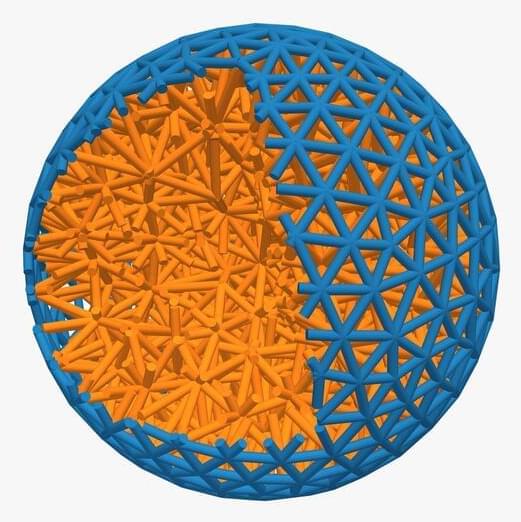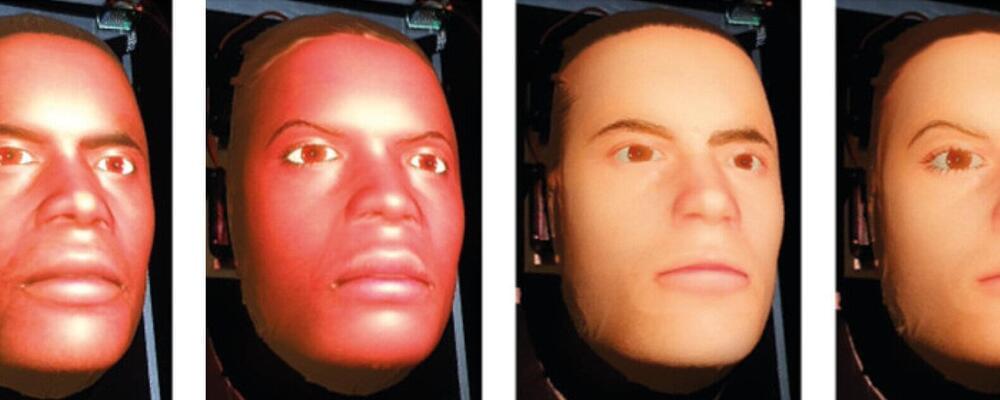Insulation and leak-proofing might not make neighbors jealous, but they can dramatically bring down a homeowner’s utility bills.



Canada’s major oil sands producers are working together on a first-of-its-kind net-zero initiative that could help ensure long-term, secure supplies of affordable and responsible energy for North America.
Together, Canadian Natural, Cenovus Energy, ConocoPhillips Canada, Imperial, MEG Energy, and Suncor Energy have formed the Oil Sands Pathways to Net-Zero Alliance.
The goal of the Alliance is to achieve a phased reduction in emissions from oil sands operations, reaching net-zero by 2050, working in collaboration with Canadian federal and provincial governments.
A team from the Max Planck Institute for Intelligent Systems in Germany have developed a novel thumb-shaped touch sensor capable of resolving the force of a contact, as well as its direction, over the whole surface of the structure. Intended for dexterous manipulation systems, the system is constructed from easily sourced components, so should scale up to a larger assemblies without breaking the bank. The first step is to place a soft and compliant outer skin over a rigid metallic skeleton, which is then illuminated internally using structured light techniques. From there, machine learning can be used to estimate the shear and normal force components of the contact with the skin, over the entire surface, by observing how the internal envelope distorts the structured illumination.
The novelty here is the way they combine both photometric stereo processing with other structured light techniques, using only a single camera. The camera image is fed straight into a pre-trained machine learning system (details on this part of the system are unfortunately a bit scarce) which directly outputs an estimate of the contact shape and force distribution, with spatial accuracy reported good to less than 1 mm and force resolution down to 30 millinewtons. By directly estimating normal and shear force components the direction of the contact could be resolved to 5 degrees. The system is so sensitive that it can reportedly detect its own posture by observing the deformation of the skin due its own weight alone!
We’ve not covered all that many optical sensing projects, but here’s one using a linear CIS sensor to turn any TV into a touch screen. And whilst we’re talking about using cameras as sensors, here’s a neat way to use optical fibers to read multiple light-gates with a single camera and OpenCV.
Join us on Patreon!
https://www.patreon.com/MichaelLustgartenPhD
Papers referenced in the video:
Association between low-density lipoprotein cholesterol and cardiovascular mortality in statin non-users: a prospective cohort study in 14.9 million Korean adults.
https://pubmed.ncbi.nlm.nih.gov/35218344/
Relationship between serum non-high-density lipoprotein cholesterol and incidence of cardiovascular disease.
https://pubmed.ncbi.nlm.nih.gov/21176640/
Non-HDL cholesterol paradox and effect of underlying malnutrition in patients with coronary artery disease: A 41,182 cohort study.
https://pubmed.ncbi.nlm.nih.gov/35168005/
Age and sex variation in serum albumin concentration: an observational study.
https://pubmed.ncbi.nlm.nih.gov/26071488/
Commonly used clinical chemistry tests as mortality predictors: Results from two large cohort studies.

US startup company Green Hydrogen International announced plans for a a 60GW renewable H2 project that will be powered by wind and solar. It’ll also produce clean rocket fuel for SpaceX, which is helmed by billionaire Tesla CEO Elon Musk, according to a report published yesterday in Recharge.
“We see Hydrogen City becoming one of the largest H2 production centers in the world, supplying many different customers with 100% clean H2 fuel,” founder Brian Maxwell told the energy industry pub.
The image below from GHI’s website shows the process of converting renewable energy from wind and solar farms into ammonia and rocket fuel. The key to scaling up production, the company says, is the large salt storage capability found in underground salt domes.


Physicists have discovered a new way to coat soft robots in materials that allow them to move and function in a more purposeful way. The research, led by the UK’s University of Bath, is described today in Science Advances.
Authors of the study believe their breakthrough modeling on ‘active matter’ could mark a turning point in the design of robots. With further development of the concept, it may be possible to determine the shape, movement and behavior of a soft solid not by its natural elasticity but by human-controlled activity on its surface.
The surface of an ordinary soft material always shrinks into a sphere. Think of the way water beads into droplets: the beading occurs because the surface of liquids and other soft material naturally contracts into the smallest surface area possible—i.e. a sphere. But active matter can be designed to work against this tendency. An example of this in action would be a rubber ball that’s wrapped in a layer of nano-robots, where the robots are programmed to work in unison to distort the ball into a new, pre-determined shape (say, a star).

A new approach to producing realistic expressions of pain on robotic patients could help to reduce error and bias during physical examination.
A team led by researchers at Imperial College London has developed a way to generate more accurate expressions of pain on the face of medical training robots during physical examination of painful areas.
Findings, published today in Scientific Reports, suggest this could help teach trainee doctors to use clues hidden in patient facial expressions to minimize the force necessary for physical examinations.

Researchers have found an effective target in the brain for electrical stimulation to improve mood in people suffering from depression. As reported in the journal Current Biology on November 29, stimulation of a brain region called the lateral orbitofrontal cortex (OFC) reliably produced acute improvement in mood in patients who suffered from depression at the start of the study.
Those effects were not seen in patients without mood symptoms, suggesting that the brain stimulation works to normalize activity in mood-related neural circuitry, the researchers say.
“Stimulation induced a pattern of activity in brain regions connected to OFC that was similar to patterns seen when patients naturally experienced positive mood states,” says Vikram Rao, of the University of California, San Francisco. “Our findings suggest that OFC is a promising new stimulation target for treatment of mood disorders.”

Many people say that Einstein failed because he was simply ahead of his time. The knowledge and tools needed to complete a unified theory simply hadn’t been developed before Einstein died in 1955.
Today, many physicists are taking up his quest. The most promising approach appears to be string theory, which requires 10 or more dimensions and describes all elementary particles as vibrating strings, with different modes of vibration producing different particles.
String theory has not yet made any testable predictions, and some scientists worry that string theorists have, like Einstein in his later years, strayed too far from physical reality in their obsession with beautiful mathematics. But many others believe string theory does indeed hold the key to completing Einstein’s quest, and researchers are hoping to find ways to test some of the predictions of string theory.